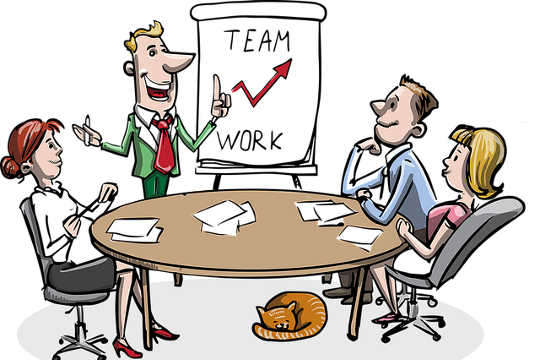
Sociologists and psychologists describe the groups of people around us who influence our thinking as our “interpretive communities.” Families, in particular, create a culture or story. Family rules determine who gets to say what they think and feel (usually parents) and who should stay quiet (children). In some families, everyone is taught to avoid confrontation. Other families have a style of dealing with conflict very directly and openly, including children. Families have unwritten rules about what role each parent should play in child-rearing.
In schools we are taught that we are good or poor students. We learn subtle differences in status, so that we know who the cool kids are. We are also taught how to feel about other people and other countries. In some cultures, schools and institutions emphasize respect for authority. Others stress the virtues of equality.
Marshall McLuhan, one of the mid-twentieth century’s important thinkers, once claimed that culture is like a glass dome. As long as you are inside it, you don’t know that you are enclosed. If everyone around us has the same beliefs, then we don’t notice that our feelings may not be universal — that they may be rooted in our family, community, or culture.
One way to see that feelings are based on beliefs that are not universal is to watch attitudes change socially. Probably no change in recent American culture is more dramatic than the position of women. Since the 1970s there have been radical changes in beliefs about the role of women in families and society. Women have often felt conflicted about their own aspirations and social expectations: they may feel they should have a career, but they also feel they should have children and spend time with them. A woman who changes her ideas about her family role needs her partner to change also.
As social and cultural beliefs change, so do our emotions.
Self-Fulfilling Prophecies
One of the challenges in exploring how our ingrained beliefs influence our perceptions and emotions is that the process is nearly instantaneous. It happens so fast that we’re not aware we’re reaching a feeling based on our judgment, which is based on our beliefs. More than that, once we’ve accepted a belief, it not only tells us what to feel; it also drives our behavior. We act on that belief, and our beliefs often become self-fulfilling prophecies.
A self-fulfilling prophecy is a thought that makes us act in a way that brings about the expected outcome. In other words, because we expect something to happen, we act in ways that bring about what we expect, and that outcome in turn seems to prove that our expectation was correct.
Joanie and David have been married for nearly ten years, and Joanie has come to expect David to be distant and aloof, not show interest, not talk, not kiss, not touch, not notice her. She feels rejected. Even though she wants emotional contact, when they get home from work she acts as though he has already rejected her. Because she expects him to be distant, she begins to feel hurt the minute he walks in the door, and she begins poking at him with caustic digs. He feels attacked, so he shuts down, fulfilling her expectation.
Joanie has little awareness of the role she plays in making him emotionally distant. He might be distant anyway, but we may never find out, because she’s so busy giving him good reasons to act that way. Feeling rejected, she acts in ways that ensure her rejection.
Imagine how things might be different if she said: “I’d like to feel close to you. I’d like to give you a big hug and talk for a few minutes.” An approach like this might get Joanie the response from David that she wants.
In a self-fulfilling prophecy, our deep and strongly held beliefs influence our actions toward others. Those actions in turn trigger beliefs in other people that motivate their actions toward us. These actions prove to us that we were right in the first place.
Here’s a simple example:
Several people take a course that might help them get a promotion. To get credit, they need to get a grade of B. They all took a test partway through the course, and each received a C.
Bill is deeply discouraged by his C. He tells himself, “I’m no good at taking tests. I can’t even do well in this rinky-dink course.' Bill is so discouraged that he gives up trying. The result is that he gets a D in the course. Because he thinks he’s no good academically, he proves it.
Judith is disappointed in her C. She tells herself, “I’m usually pretty good at this stuff, and this is just a midterm test. I bet if I work really hard I can bring this grade up to a B.' So she works hard and gets a B, just barely missing out on an A. She knows she can do well if she works hard, and proves it.
Regina is angry with her C. She believes the teacher doesn’t like her. This belief could direct her behavior in at least two ways. She could decide, “I’m going to show her,' work hard, and get a good grade. Or she could conclude that because of the teacher’s dislike her efforts are hopeless, give up, and get a poor grade. Regina decides it is hopeless to try to do well in a course when the teacher doesn’t like her. She gives up trying and does poorly in the rest of the course.
All three people had the same external experience: getting a C on the test. But they each had a different emotional reaction to the event, and they took different actions based on their feelings. Bill, for example, has proved to himself that he can’t be expected to do well in a classroom setting. Judith has proved that she is a good student as long as she puts out the effort. Regina does nothing to give the teacher a reason to like her, and increasingly brings about the poor outcome she expects.
Not only does our interpretation of events cause us to act in certain ways, but our actions in turn cue other people to act the way we expect them to act. The result proves to us that we were right all along.
The Pygmalion Effect
In ancient Greek mythology, Pygmalion was a sculptor who fell in love with one of his sculptures, which then came to life. Psychologists use the term Pygmalion effect to describe how our expectations cause others to act in ways that fulfill our expectations, even when we are unaware of how we are influencing them. For example, a leader’s high expectations may lead to an improvement in her followers’ performance. (The opposite of the Pygmalion effect is the golem effect, in which low expectations lead to declining performance.)
In a dramatic illustration of the Pygmalion effect, all the students in one class in school were given IQ tests. During the summer vacation, the researchers met with the teachers and told them that certain students were expected to be “intellectual bloomers” the coming year and gave the teachers the names of those students. Actually, those students had been selected at random. There was no reason to expect them to perform better than any other student.
At the end of the study, students were given the IQ test once again. The students who had been identified as “bloomers” did much better than the rest of the students, even though the teachers were unaware of treating the bloomers differently. The teachers’ expectations that these students would perform better somehow got transmitted to the students and led to better performance.
This research was conducted in the 1960s and would no longer be considered ethical. But it did create a much greater understanding of the extent to which teacher expectations affect student performance.
Encouraging the Behavior We Want from Others
Our expectations cue other people’s behavior, even when we are not aware of it. It pays to be aware of our expectations and even consider changing them in order to encourage the behavior we want from others.
Inez tells the story of taking charge of her actions in order to bring about the behavior she wanted:
For many years I felt hurt that my mother never told me “I love you.” I knew that this had not been done in her family and she had never been comfortable saying these words to us children. I’d picked up the family behavior and had trouble telling people I cared about that I loved them. As a trainer of others in communication skills, I thought I ought to “walk the walk.”
After working on myself, I realized that I was able to say “I love you” to all the important people in my life, except my mother. Many experiences and expectations got in my way.
I decided to live up to what I was teaching in my classes and say “I love you” to my mother. I faced the fact that by not saying “I love you,” I was withholding what she had not given me. I wanted to act right regardless of her response. She was at least eighty years old at the time.
The next time I saw her and blew a kiss goodbye to her ear, I said, “I love you.” She made no response. From that point on whenever I said goodbye to her I said, “I love you.” The second time, I think I heard a grunt; she was obviously very uncomfortable. Within a few months, and before I lost her to senility, she learned to say, “I love you too.” I felt better about myself, and because I felt better about myself I also felt better about her.
Inez had to act alone, without asking or expecting her mother to change. Even so, her change brought results. Think how much more powerful it can be when two people — maybe you and your partner — work together to understand how their unconscious interpretations influence their relationship.
Summary
Feelings are not the result of external circumstances alone. We give events a meaning based on our expectations, beliefs, thoughts, and past history. These meanings, in turn, dictate our feelings. If we are given more information or a new perspective, our feelings may change, even though the external events remain the same.
We all play a role in telling each other what things mean. Once we’ve accepted a belief, that meaning not only tells us what to feel; it also drives our behavior. We act on that belief, and our beliefs often become self-fulfilling prophecies. Not only does our interpretation of events cause us to act in certain ways, but the ways we act also cue other people to act in the way we expect. We can learn to adapt our own behavior to encourage the behavior we want from others.
Copyright ©2019 by James L. Creighton.
Printed with permission from New World Library
www.newworldlibrary.com
Article Source
Loving through Your Differences: Building Strong Relationships from Separate Realities
by James L. Creighton, PhD
 Dr. James Creighton has worked with couples for decades, facilitating communication and conflict resolution and teaching them the tools to build healthy, happy relationships. He has found that many couples start out believing they like the same things, see people the same way, and share a united take on the world. But inevitably differences crop up, and it can be profoundly discouraging to find that one’s partner sees a person, situation, or decision completely differently. Although many relationships flounder at this point, Creighton shows that this can actually be an opportunity to forge stronger ties. The result moves couples out of the fear and alienation of “your way or my way” and into a deep understanding of the other that allows for an “our way.”
Dr. James Creighton has worked with couples for decades, facilitating communication and conflict resolution and teaching them the tools to build healthy, happy relationships. He has found that many couples start out believing they like the same things, see people the same way, and share a united take on the world. But inevitably differences crop up, and it can be profoundly discouraging to find that one’s partner sees a person, situation, or decision completely differently. Although many relationships flounder at this point, Creighton shows that this can actually be an opportunity to forge stronger ties. The result moves couples out of the fear and alienation of “your way or my way” and into a deep understanding of the other that allows for an “our way.”
Click here for more info and/or to order this paperback book. Also available in a Kindle edition.
About the Author
 James L. Creighton, PhD, is the author of Loving through Your Differences and several other books. He is a psychologist and relationship consultant who has worked with couples and conducted communications training for more than 50 years. He recently developed and conducted couples conflict training for several hundred professional staff of the Thailand Department of Mental Health, based on a new Thai translation of Creighton’s book, How Loving Couples Fight. He has taught throughout North America as well as in Korea, Japan, Israel, Brazil, Egypt, Russia and the Republic of Georgia. Visit him online at www.jameslcreighton.com.
James L. Creighton, PhD, is the author of Loving through Your Differences and several other books. He is a psychologist and relationship consultant who has worked with couples and conducted communications training for more than 50 years. He recently developed and conducted couples conflict training for several hundred professional staff of the Thailand Department of Mental Health, based on a new Thai translation of Creighton’s book, How Loving Couples Fight. He has taught throughout North America as well as in Korea, Japan, Israel, Brazil, Egypt, Russia and the Republic of Georgia. Visit him online at www.jameslcreighton.com.
Related Books
at InnerSelf Market and Amazon

























